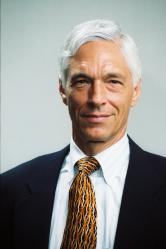Executive Summary
Intense domestic pressure has convinced Nigerian President Olusegun Obasanjo to seek a deal that would eliminate the country’s $31 billion of debt owed to the governments of the U.K., France, and other aid-giving countries that use the Paris Club process to restructure debt that countries cannot repay.
The Paris Club creditors have proposed an unprecedented operation—its first-ever buyback at a discount—that would cancel all of Nigeria’s debt to them in exchange for a cash payment of roughly $12 billion.
But sharp criticism, directed at both parties, has accompanied the proposed deal. In contrast to commercial debt-restructuring operations, Paris Club operations are highly politicized, and the pending deal reflects heavy political baggage burdening the two parties. Despite this, the Paris Club offer remains the only feasible option for both sides.
The deal is not yet closed, however. Nigeria must first obtain IMF approval of its economic reform program under a facility to be created by September; then it must hammer out the remaining details of the Paris Club deal. Passing these hurdles without stumbling will not be easy and will require exceptional patience and understanding on both sides.
POLICY BRIEF #144
Nigeria’s debt servicing problems began around 1985, when the Nigerian government’s total external debt to all creditors amounted to $19 billion. Since then, the government has paid creditors more than $35 billion while borrowing less than $15 billion. Nevertheless, its outstanding external debt at the end of 2004 grew to almost $36 billion.
How is this possible? The short answer is compound interest; the long answer is that Nigeria’s Paris Club creditors opted— for political reasons—not to restructure their claims on Nigeria in 1992 when Nigeria’s commercial creditors agreed to do so. The ballooning of Nigeria’s debt relates directly and exclusively to this policy choice by creditors.
During the past twenty years, Nigeria has met debt service obligations to its multilateral creditors (the World Bank and the African Development Bank) without any restructuring; to its commercial creditors after negotiating an exchange of bank debt at a 60 percent discount; and to its non- Paris Club bilateral creditors in return for varying degrees of debt relief. (Table 1 details Nigeria’s external debt amounts; note that Nigeria’s debt to commercial creditors and to Paris Club creditors was the same in 1985: $7.8 billion each.)



